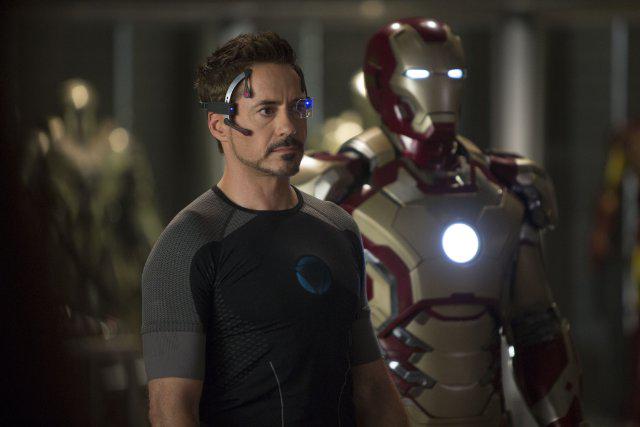Over the weekend, Iron Man 3 took in a predictably massive box office haul in the U.S. ($174.1 million, to be precise.) It had already broken a box office record in China, earning an unprecedented 130 million yuan ($21 million) on its opening day in that country. The movie that screened there, though, was not quite the same: Four minutes of additional scenes were included in the China release, added specifically to appeal to that increasingly lucrative market.
The result? As Brian Ashcraft described it over at Kotaku, the extra footage earned complaints from several Chinese news outlets. People’s Daily, for instance, described the added moments as “a pointless commercial with lots of plot holes.” And they aren’t kidding: According to The Hollywood Reporter, before the movie even begins, Chinese viewers are met with a question appearing onscreen: “What does Iron Man rely on to revitalize his energy?” followed by the answer, which is apparently Gu Li Duo, a milk drink sold in convenience stores in mainland China. Other notable changes include J.A.R.V.I.S. speaking in Mandarin Chinese sans subtitles, Dr. Wu telling J.A.R.V.I.S. (in Mandarin) that “Tony doesn’t have to do this alone—China can help,” and a brief scene featuring Chinese actress Fan Bingbing, who doesn’t appear at all in the international version.
“It literally offends me as an American in China and as an ethnically Chinese person that Hollywood would attempt to sell this to the Chinese audience,” said Kotaku’s Beijing-based writer, Eric Jou, after seeing the film there. “It undermines Chinese people’s intelligence and movie savvy.”
Altering American movies for the Chinese market is not new. Often, studios try to avoid offending Chinese viewers—and censors: The country is notorious for its rigid hold on its film industry, and heavy censorship rules have prevented the release of many foreign films. Django Unchained, for instance, was to be the first Quentin Tarantino film released in China in April, but was prevented from screening at the last minute. The film is set to finally make its debut, presumably after additional cuts, later this month. Given that China plans to increase its foreign film quota from 20 films a year to 34, we can probably expect more of this sort of thing.*
As well as, it seems, even more extensive revision, when the money’s right: Earlier this year, the raunchy college comedy 21 & Over warned Chinese viewers of the dangers of studying abroad and attempting to assimilate into U.S. culture. This was not the message of the American version. As one of the movie’s writers, Jon Lucas, told the Los Angeles Times, the student played by Justin Chon (a Korean-American actor) returns to China at the end of the altered version, now “a better person” after renouncing “our wayward, Western partying ways.” Relativity Media, the independent studio that released 21 & Over, brokered a deal with Chinese companies that provided partial funding for the film, and additional scenes were shot in China, allowing it to get around the country’s foreign-film quota.
There’s a long history of altering American movies for international audiences, as the late film scholar Robert Sklar touched on in his book Movie Made-America: A Cultural History of American Movies. And sometimes these changes seem essentially harmless. In foreign markets, Lincoln began with a minute-long montage of images and text describing the situation in America in 1865, so audiences unfamiliar with the Civil War would have additional context for the story. Iran digitally removed a shirtless man from a scene in Talladega Nights, a change that probably did not fundamentally alter the nature of that film.
But that latter change—along with, of course, the more extensive revisions of 21 & Over, Iron Man 3, and other movies—does illustrate a larger point: Hollywood is generally happy to send a more palatable version of American culture overseas if it means a bigger financial return. As James Marsh of Twitch Film points out, those sorts of changes “highlight the cultural divide,” rather than bridging the gap. And, as Iron Man 3 demonstrates, Hollywood executives may have an even lower opinion of viewers in other countries than they do of us here in the United States.
* Correction, 4:47 p.m.: This post originally stated that the Chinese version of the Red Dawn remake switched out a Chinese army for a North Korean one. In fact, that change was made in all versions of the movie, albeit for the same reason: so that the studio could avoid angering viewers in China and especially the Chinese government.
